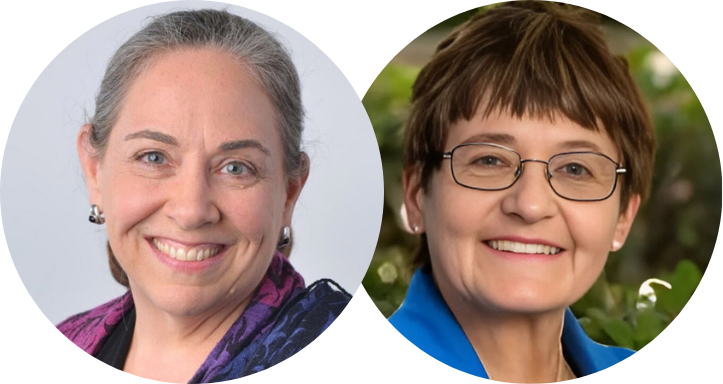ABPP: Treating Later-Life Depression: Personalized Approaches
Presented by: Ann M. Steffen, PhD, ABPP and Dolores Gallagher-Thompson, PhD, ABPP

This on-demand professional training program on Treating Later-Life Depression: Personalized Approaches is presented by Dolores Gallagher Thompson, Ph.D., ABPP, and Ann M. Steffen, Ph.D., ABPP in partnership with the American Board of Professional Psychology (ABPP).
One of the greatest challenges for practitioners treating later-life depression is the wide variability of life circumstances that accompany depressive symptoms for aging patients across outpatient mental health and integrated care.
This program reflects continuing international scientific and clinical advances in applying CBT with depressed middle-aged and older adults, using examples from the newly revised Treating Later-Life Depression: A Cognitive-Behavioral Therapy Approach from Oxford University Press.
Detailed suggestions are provided and demonstrated for how to modify core therapy strategies with aging patients, including behavioral activation, problem-solving, emotional literacy, and cognitive reappraisal. A particular focus is on strategies for addressing common comorbid concerns such as brain health, chronic pain, sleep problems, family caregiving responsibilities, grief, and relationship difficulties.
Upon completion of this training, participants will be able to:

We are proud to partner with The American Board of Professional Psychology for this training. The American Board of Professional Psychology serves the public by promoting the provision of quality psychological services through the examination and certification of professional psychologists engaged in specialty practice. ABPP is the primary organization for Specialty Board Certification in Psychology. There are currently 15 Specialty Boards and one Subspecialty Board..
Palo Alto University, Continuing & Professional Studies (CONCEPT) is approved by, recognized by, or maintains sponsorship provider status with the following boards and agencies. We maintain responsibility for all content in our CE/CPD programs. For more information, visit here.
American Psychological Association (APA): Approved sponsor of continuing education for psychologists.
Association of Social Work Boards (ASWB): Approved continuing education provider (ACE program, Provider #1480), 11/22/2023–11/22/2026.
Canadian Psychological Association (CPA): Approved to sponsor continuing education for psychologists.
National Board for Certified Counselors (NBCC): Approved Continuing Education Provider (ACEP No. 7190).
Palo Alto University, Continuing and Professional Studies (CONCEPT) is approved by the American Psychological Association to sponsor continuing education for psychologists. Palo Alto University, Continuing and Professional Studies (CONCEPT) maintains responsibility for this program and its content. Palo Alto University, Continuing and Professional Studies (CONCEPT), is approved by the Canadian Psychological Association to offer continuing education for psychologists. Palo Alto University, Continuing and Professional Studies (CONCEPT), SW CPE is recognized by the New York State Education Department’s State Board for Social Work as an approved provider of continuing education for licensed social workers #SW-0356 and the New York State Education Department’s State Board for Mental Health Practitioners as an approved provider of continuing education for licensed mental health counselors. #MHC-0073. Palo Alto University, Continuing and Professional Studies (CONCEPT) has been approved by NBCC as an Approved Continuing Education Provider, ACEP No. 6811. Programs that do not qualify for NBCC credit are clearly identified. CONCEPT Professional Training, #1480, is approved to offer social work continuing education by the Association of Social Work Boards (ASWB) Approved Continuing Education (ACE) program. Organizations, not individual courses, are approved as ACE providers. State and provincial regulatory boards have the final authority to determine whether an individual course may be accepted for continuing education credit. CONCEPT Professional Training maintains responsibility for this course. ACE provider approval period: 11/22/23-11/22/26. Social workers completing this course receive (clinical or social work ethics) continuing education credits.